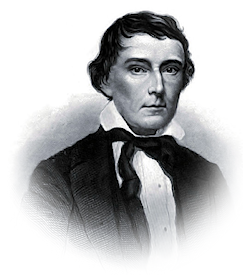Crawfordville [Ga.], July 15th, I860.
Dear Smith, I have but a moment to acknowledge receipt of two letters from you—the dates I forget. I am about to start in a few moments for Augusta where I am to be at court tomorrow. I am glad you corrected the lying report that I was going to support the nomination of the seceders[i]. Never could I do such a thing until I became as inconsistent and as regardless of my public record and long cherished principles as those who put upon [us] this nomination. And I trust I may never live to see the day when I shall feel the personal degradation that such a consciousness would inflict upon me. I shall support the nominees of the National Democratic party as long as its flag floats bearing upon its folds the principles upon which I at first entered its ranks. But I can say no more. I shall take no active part in the canvass. In quitting public life my object was to quit all political strifes and keep out of such contests. I am out, and intend to stay out. As a private citizen I shall exercise my franchise and most cordially shall I vote for Douglas and Johnson. I had forgotten what you wrote about the Cyclopoedia. Do as you propose. Send me the 3 vols, when out as you propose or get Shillington to send them. I have got the newspapers you sent me and am obliged to you. Send me more of the same sort. I have been highly entertained with them. I am better than I have been but am still an invalid. The drought here is distressing. We shall make very little corn. The prospect is gloomy beyond conception. On the 11th inst. the thermometer here was at 102°—never before above 98°.
[i] The Breckinridge ticket, whose supporters had seceded from the Charleston and Baltimore conventions.
From Annual Report of the American Historical Association for the Year 1911.
Alexander Hamilton Stephens was an American politician who served as the vice president of the Confederate States from 1861 to 1865. After serving in both houses of the Georgia General Assembly, he won election to Congress, taking his seat in 1843. After the Civil War, he returned to Congress in 1873, serving to 1882 when he was elected as the 50th Governor of Georgia, serving there from late 1882 until his death in 1883.
J. Henley Smith was a Georgia journalist.
